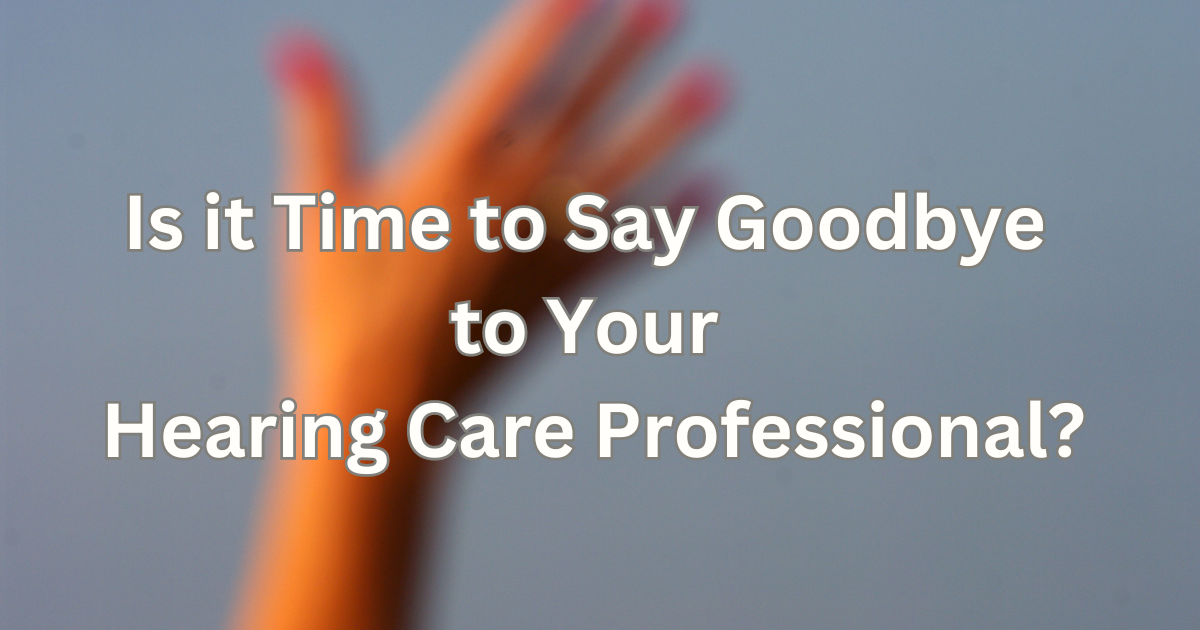I am a big fan of hearing care professionals, both as a group and individually.
Regardless of their designation, I respect and applaud the audiologists and hearing instrument specialists who have chosen the life of a clinician, researcher, industry representative and clinic owner – or a personal combination of these practices.
As members of the field of hearing care and science, they offer me better technology, better understanding of hearing loss, and improved acceptance and control over my individual hearing journey. But these outcomes are not possible without the important, mutually beneficial relationship between the HCP and the Client.
But sometimes, the person with hearing loss (PWHL) makes the decision to change their HCP. Geography can be a factor; moving to a new province meant a wrenching goodbye to a clinic and personnel that I’d been working with for years. Sometimes the decision is thrust upon us when our HCP leaves the clinic on personal or professionals grounds.
But there are other reasons for a PWHL to consider shifting their ‘business’, such as I have done more than once in my decades of receiving hearing care. Some people want a second opinion of the diagnosis they’ve been handed and others balk at hearing aid sticker shock, but I’m talking about a radical break from an established relationship.
When clinic ownership changes, whether sold to another private practice owner or a corporate hearing care organization, sometimes the transformation is not subtle but jarring. I have seen clinics suddenly become very clinical. Reading material disappears, leading you to expect that you won’t have to wait more than a nano-second to be seen. But think about this: have you ever been to a clinic – let’s say family practice or cancer – where there wasn’t a variety of issue-related brochures available to read? In our field, clients need information on living well with hearing loss, seldom provided by their service providers.
My main reason for the rare decision to move is feeling a deep shift in my connection to, or even trust in, my hearing care provider. Over time, I may have sensed a drop in attention to my needs. Or I realize that the connection was simply not as strong as what I had enjoyed in the past with others – and that connection is everything.
We can forgive hearing aid snafus, such as getting the right ear mold fit from the manufacturer. Clinicians have bad days. Clients have bad days. Shit happens.
But when I realize that I’m not getting what I need from the arrangement, the time has come to say goodbye. I need a solid and rich connection with an audiologist who works on the dedicated philosophy of person-centered care.
That’s what works for me, and I won’t settle for less.






